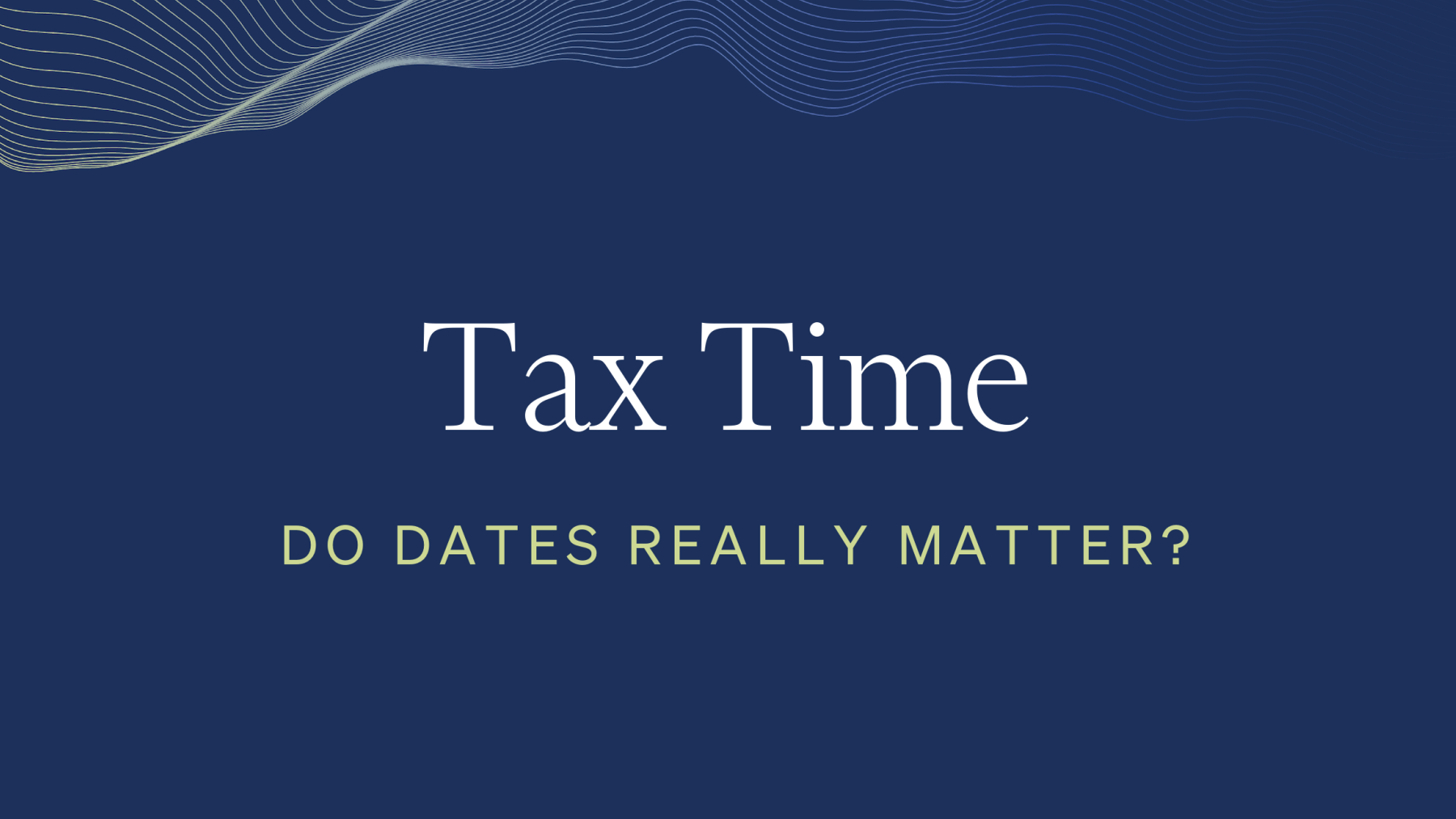Tax Time: Do Dates Really Matter?
- Financial Planning
- Tax Planning

By mid-April, most Americans are heaving a sigh of relief: their tax returns are filed, and even if they had to pay a little more than they hoped (and who doesn’t?), at least the annual “IRS ordeal” is over for another year. Of course, Californians who were affected by the drastic winter weather of 2022–23 get a little extra time, since the IRS approved an extension to October 16, 2023, for the filing of their income tax returns.
While it’s true that you’ve earned a bit of respite from the drudgery of having to prepare and file your return and from the weary resignation of sending your annual payment to Uncle Sam’s coffers, you probably shouldn’t park your “tax consciousness” until the deadline date—at least, not if you want to ensure yourself of keeping more of your hard-earned income for yourself and giving less of it to the US Treasury.
Instead, you should aim to pursue a tax-efficient financial strategy all year round—not just at the end of the year or right before you file your return. Get in the habit of being consistently “tax-conscious,” and not only will you reap the benefit of paying less in taxes, but you’ll also avoid the ritualized “tax stress” that plagues many Americans every year during tax season.
1. Is it time to bundle? While the Tax Cuts and Jobs Act of 2017 doubled the personal exemption, thus making it less practical for most filers to claim charitable deductions on an annual basis, you may benefit by strategically bundling what would normally be two or more years’ of deductions into one and claiming a larger deduction in the year the donation is made. Doing this requires a little advanced planning, however, and it’s best to not wait until the end of the year when you typically receive all the appeals from your favorite charities. And don’t forget: donations aren’t limited to cash. Donating appreciated stock can be a good way to benefit your most cherished causes while also reducing your capital gains tax bill. You may also want to consider contributing to a donor-advised fund (DAF), which can receive highly appreciated stock and other types of assets, then distribute proceeds to approved charities you choose tax free.
2. The tax-loss harvest season runs all year long. With the help of your financial advisor, keep an eye on assets that are priced below where you bought them, and don’t wait until the end of the year to strategically harvest losses. Historically, November and December have been months when the markets have seen some of their better returns. In other words, waiting until the end of the year could potentially cost you opportunities to harvest losses that could be more helpful in offsetting future gains—and avoiding taxes – as we previously discussed in our blog, “Loss Harvesting Makes Lemonade Out of Lemons”.
3. Minimize taxable income. Are you maxing out your traditional IRAs, Roth IRAs, 401(k), or 403(b) accounts? Depending on your circumstances and future income projections, these accounts can provide a big break on your tax bill now, deferring taxes until later years when you may be in a lower tax bracket. And if you qualify, don’t forget about health savings accounts (HSAs), which allow you to reduce taxable income by making contributions that can later be withdrawn tax-free for qualified healthcare expenses. Systematic deposits made throughout the year can ease the cash flow burden at tax time.
4. Project your tax situation. With the help of your financial advisor and tax specialist, prepare a tax projection for the next tax year. This “preview of coming taxes” can then serve as a planning basis for all the strategies mentioned above. And it can also give you some breathing room and time to get an accurate overview of where you are now, and where you want to be by the next filing deadline.
As a fiduciary financial advisor, Quantum guides our client’s investing and important financial strategies while always placing our clients’ best interests first and foremost. To learn more, please contact us.
DISCLOSURE: Quantum Financial Advisors, LLC is an SEC registered investment adviser. SEC registration does not constitute an endorsement of Quantum Financial Advisors, LLC by the SEC nor does it indicate that Quantum Financial Advisors, LLC has attained a particular level of skill or ability. This material prepared by Quantum Financial Advisors, LLC is for informational purposes only and is accurate as of the date it was prepared. It is not intended to serve as a substitute for personalized investment advice or as a recommendation or solicitation of any particular security, strategy or investment product. Advisory services are only offered to clients or prospective clients where Quantum Financial Advisors, LLC and its representatives are properly licensed or exempt from licensure. No advice may be rendered by Quantum Financial Advisors, LLC unless a client service agreement is in place. This material is not intended to serve as personalized tax, legal, and/or investment advice since the availability and effectiveness of any strategy is dependent upon your individual facts and circumstances. Quantum Financial Advisors, LLC is not an accounting or legal firm. Please consult with your tax and/or legal professional regarding your specific tax and/or legal situation when determining if any of the mentioned strategies are right for you.
Please Note: Quantum does not make any representations or warranties as to the accuracy, timeliness, suitability, and completeness, or relevance of any information prepared by an unaffiliated third party, whether linked to Quantum’s website or blog or incorporated herein, and takes no responsibility for any such content. All such information is provided solely for convenience purposes only and all users thereof should be guided accordingly.
For more information about Quantum and this article, please read these important disclosures.
- Financial Planning
- Tax Planning









